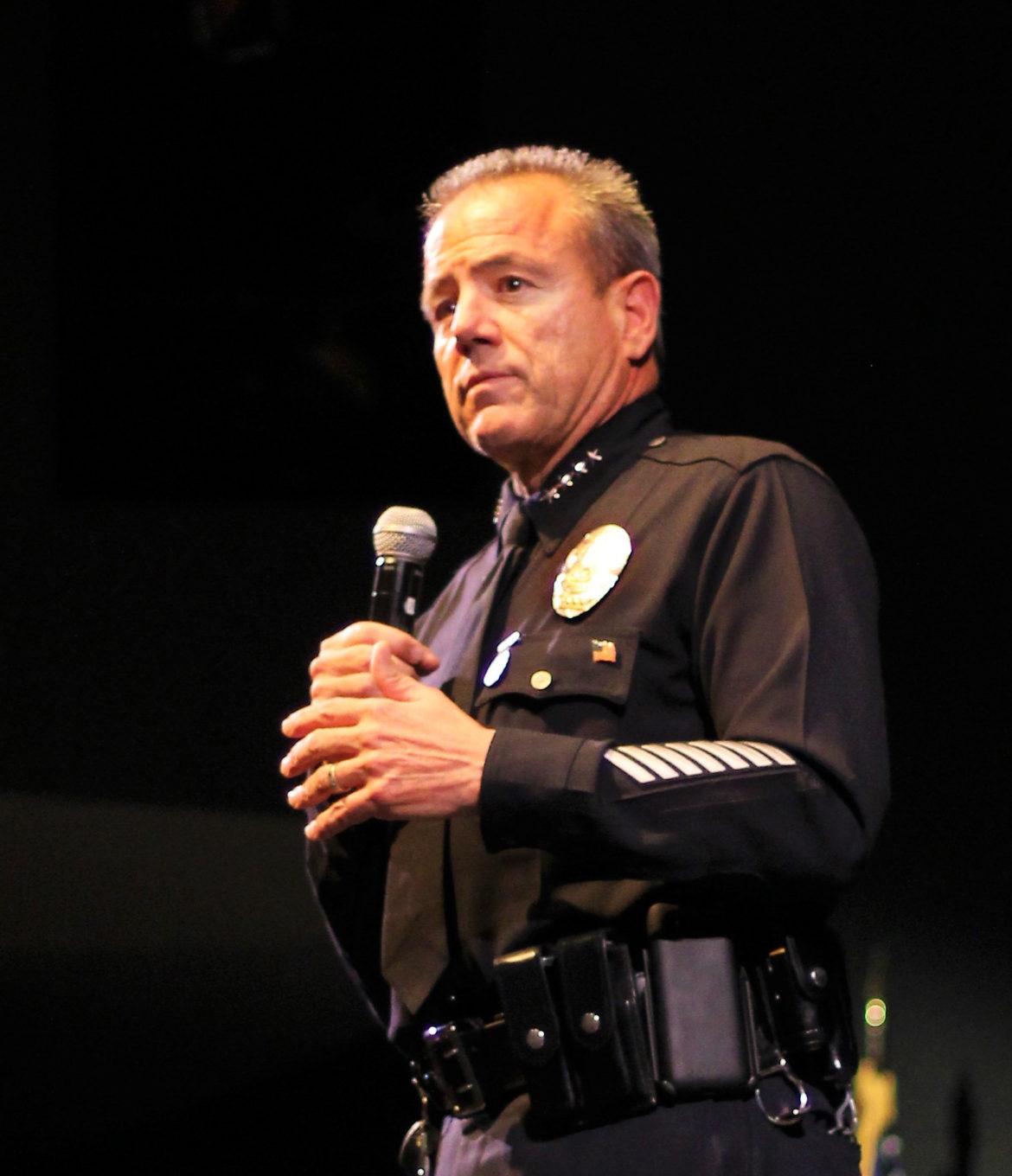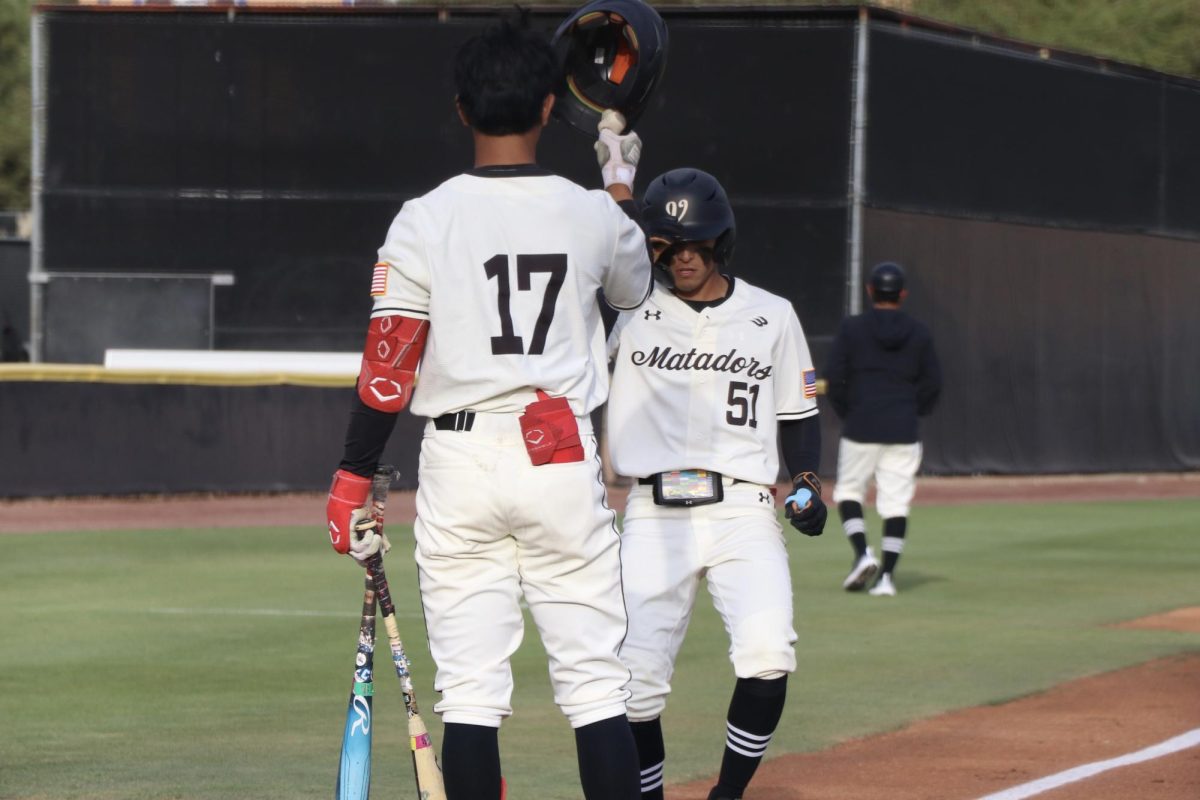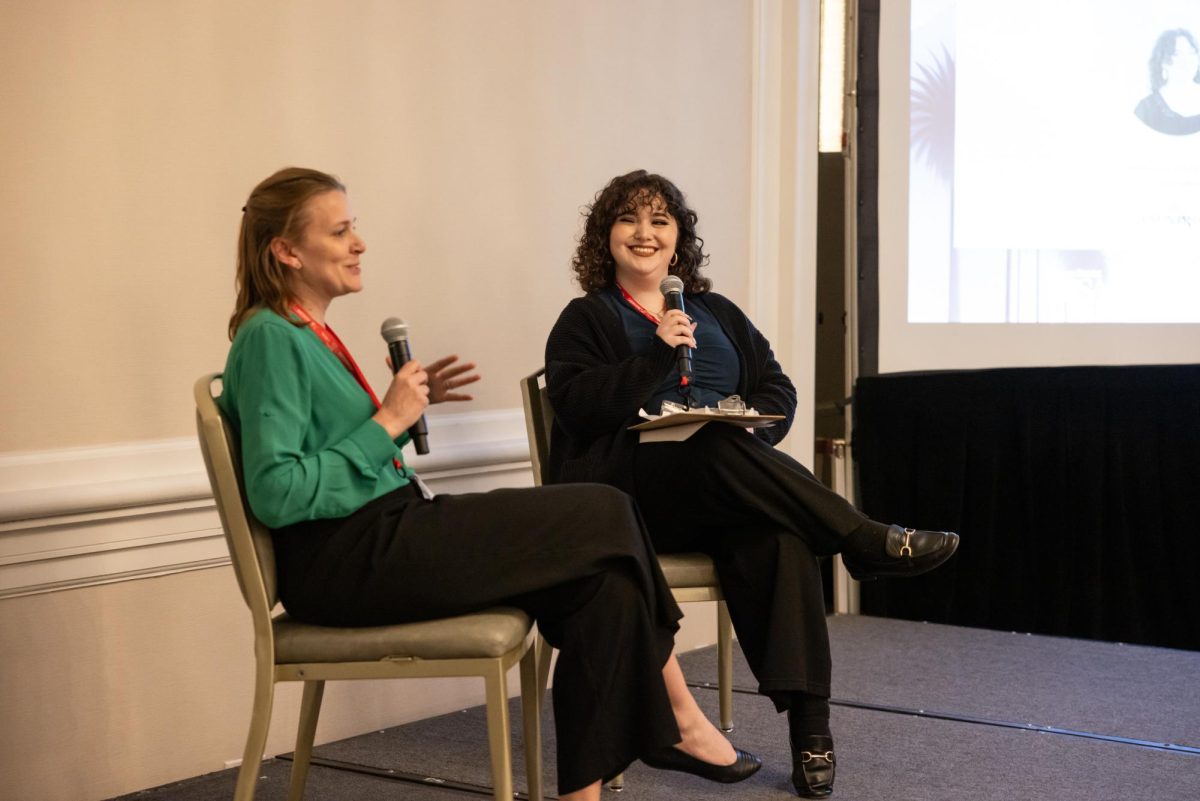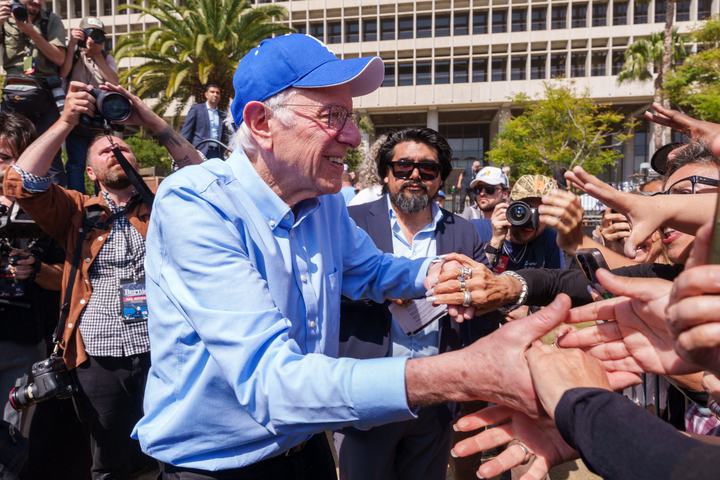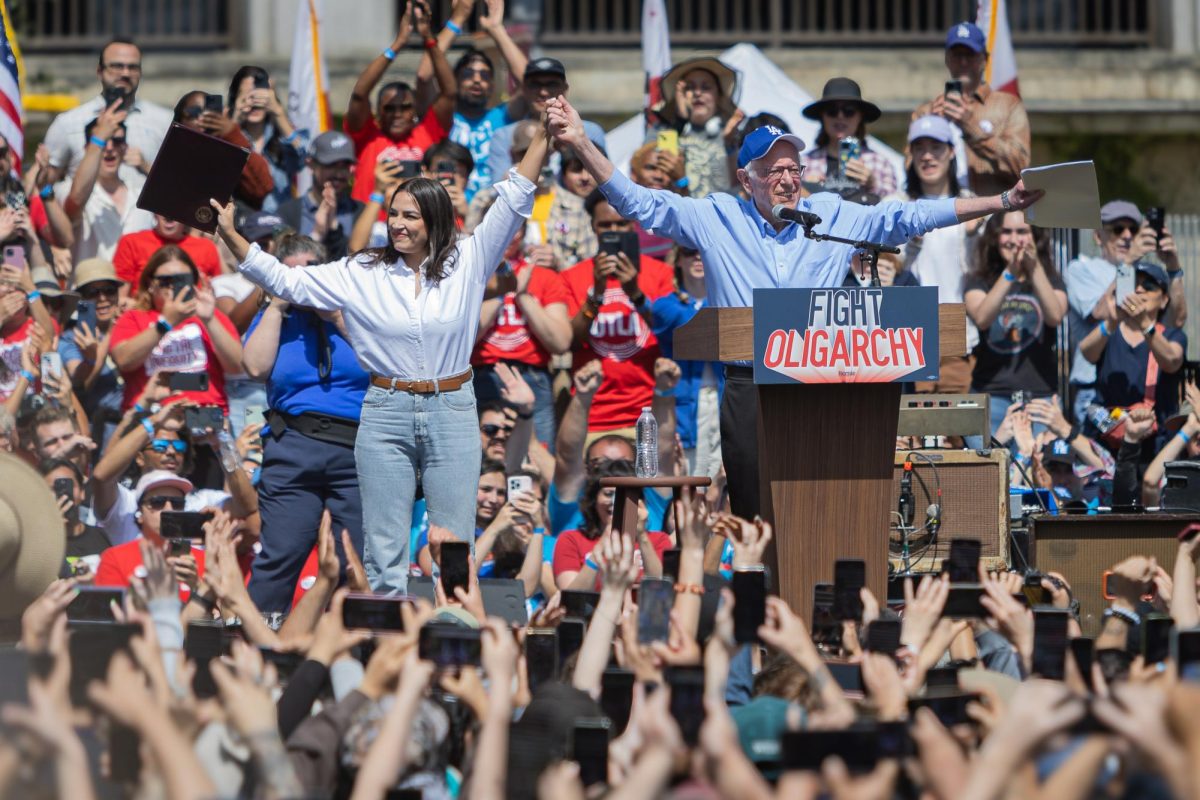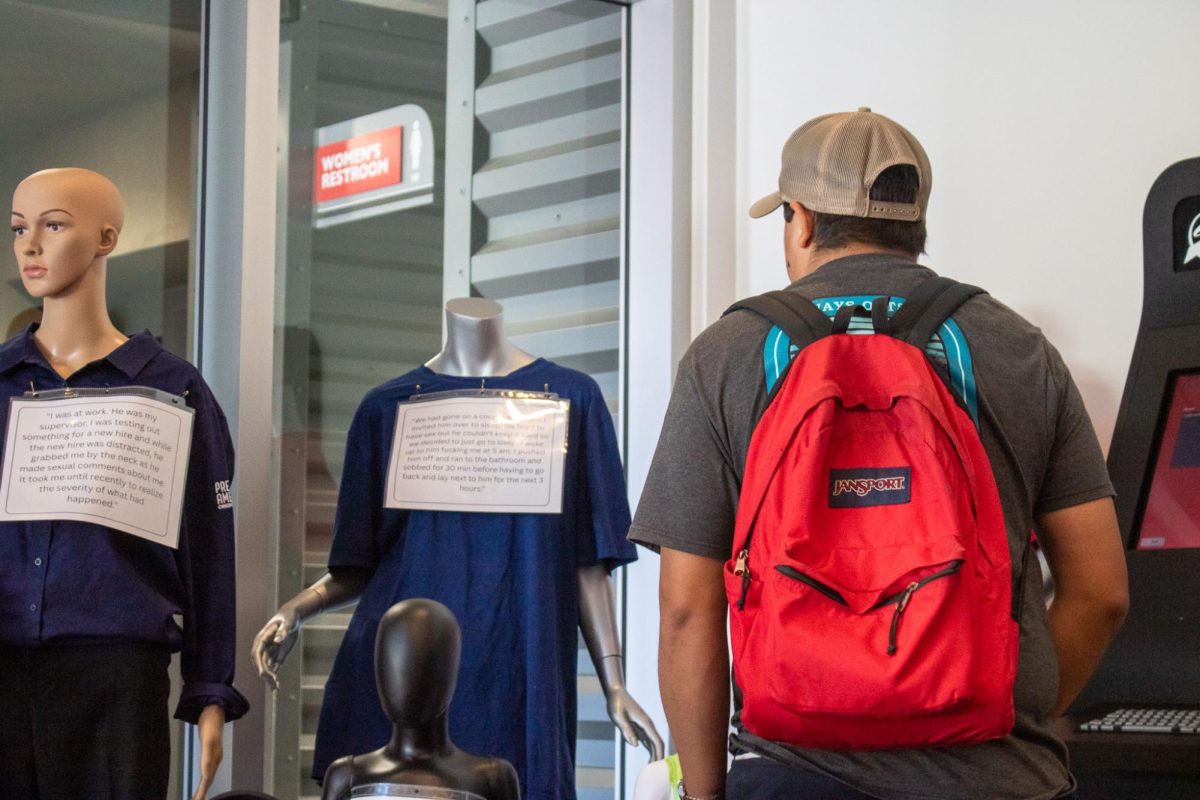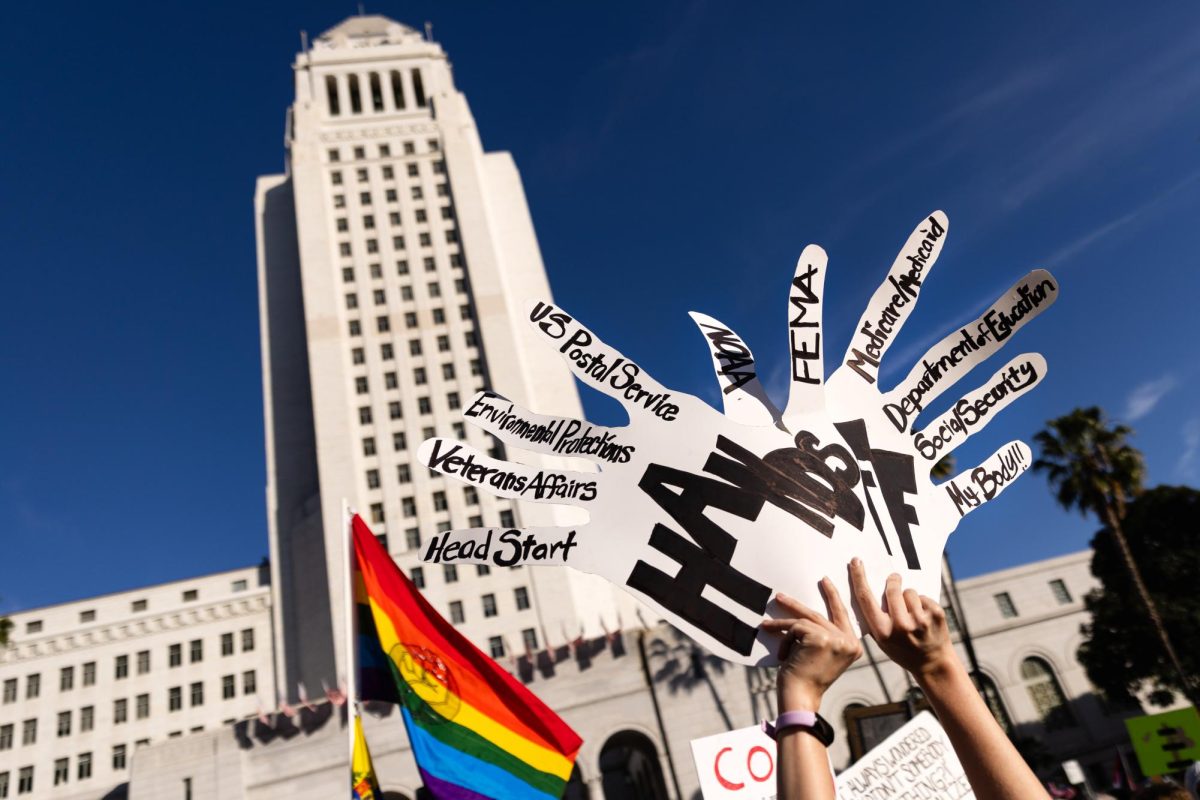LAPD Chief Michel Moore spoke to the CSUN campus on Oct. 10 in hopes of connecting with the public as well as highlighting key issues such as data driven policing, immigration, police bias, homelessness and other problems facing Northridge and the San Fernando Valley.
Josh Rubenstein, LAPD public information director and lecturer in CSUN’s Department of Criminology and Justice Studies, was the moderator of the event. He was the first to greet the crowd, including some of his criminal justice students, and introduced both people who were speaking at the event.
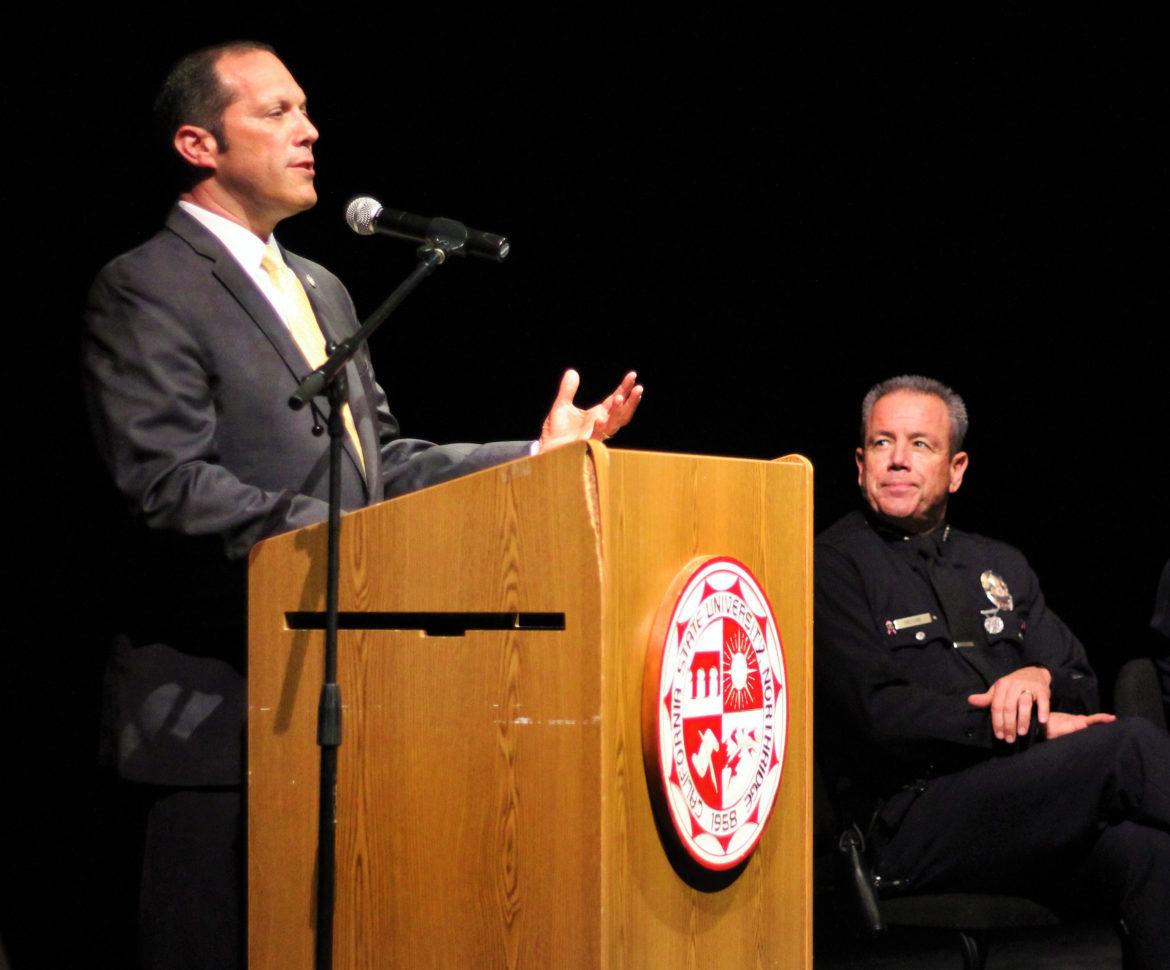
Before he introduced the speakers, however, Rubenstein pointed out that the event was not an open forum in terms of picking out hands from the crowd, rather picking pre-written questions from the crowd in order to ensure fairness.
“When we pick from the crowd, somebody gets left out or isn’t given a chance to be heard,” Rubenstein said.
The first speaker at the open forum was LAPD Deputy Chief Kris Pitcher. Pitcher began his remarks by pointing out some facts about the police department and the San Fernando Valley.
“The valley is the single largest area of responsibility for the entire LAPD,” said Pitcher. “The crime picture is about 85 percent property crime, 15 percent violent crime. Our biggest issues right now are burglary theft for motor vehicles and personal theft. Those two alone comprises almost 60 percent of crimes in the valley.”
Pitcher spoke for another 10 minutes in his opening remarks about statistics and general things to know about the San Fernando Valley area. Before Pitcher handed off the microphone to the main speaker of the night, he laid out the main reason why the LAPD came to a college campus to host an open forum in the first place.
“My staff is here to take what you say tonight, so we can replicate that, take your input and insights and use it daily,” Pitcher said. “We are listening to you. We want to hear what you have to say and make our department better.”
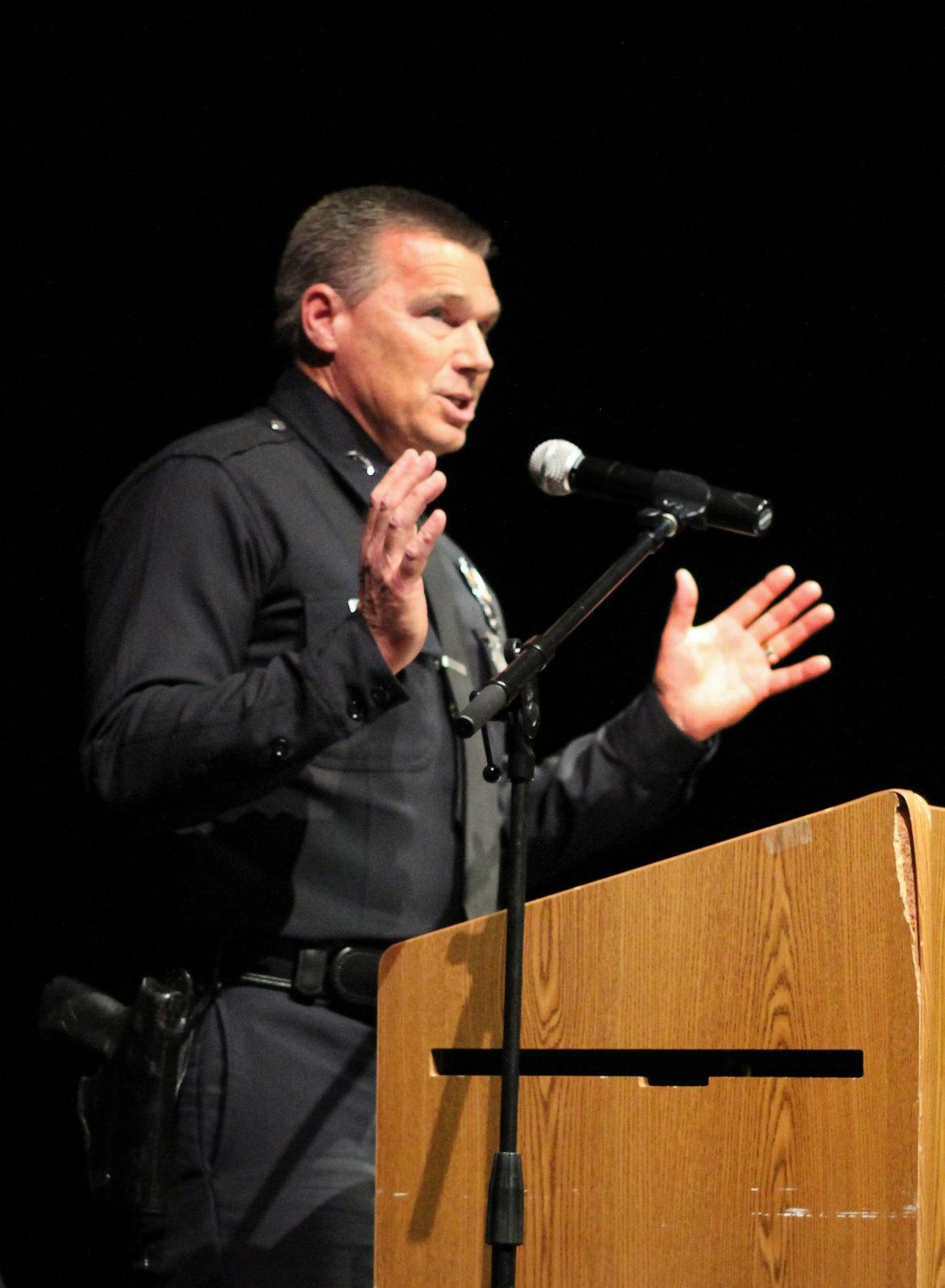
The main speaker of the evening, Moore, then took center stage to answer a few questions from Rubenstein on cards from the audience. The first question had to do with the sheer size of the LAPD and how to keep track of such a large organization.
“As an organization we are very data driven, we start off with core values and the objectives we are trying to achieve,” Moore said. “LAPD has been very engaged in performance management. We are down in homicides and shooting victims in the last year, those are quantitative measures. That is one way that an assessment is made. Another assessment is community engagement. We have seen our numbers improve in almost every area over the last few years, but one area we need improvement on is public trust. We need the public to believe that the LAPD is working with them and is looking for community solutions.”
Moore went on to tackle other issues such as data driven policing, and how programs such as Palantir are tracking crimes based on victim, subject and location to present a clearer picture on who the criminal is.
The next line of questioning had to do with immigration. The question presented to Moore was, “What is the LAPD relationship with ICE like?”
While Moore pointed out that he is from a family of immigrants, he was quick to acknowledge that “a person’s immigration status is not a police matter.” Moore reiterated to the crowd that the LAPD’s job is to keep the public safe and not living in fear.
Moore was then asked about a huge problem facing not only the LAPD, but the city itself: the problem of homelessness.
“Homelessness is the crisis of our generation,” Moore said. “Last year in the County of Los Angeles, 809 people died from homelessness. Almost 30,000 slept last night without shelter. This is not just a policing problem, but a societal problem.”
After an hour and a half of questioning, the event was over and people lined up to get their book bags in the lobby. Some students were talking about what they just heard.
“I think Chief Moore did a really great job of answering questions to the best of his capability even if time was limited,” said Esteban Urzua, 21, a political science major. “I really appreciated him speaking to students.”
